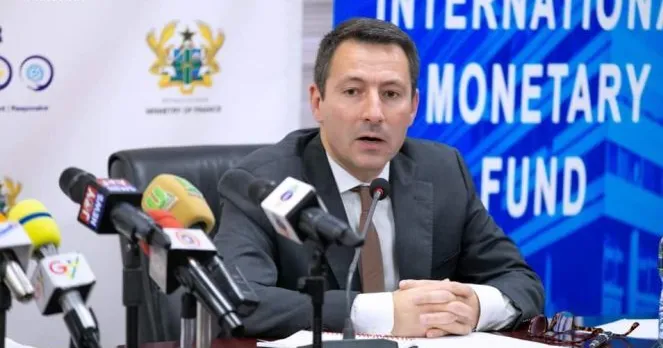Gov’t, IMF seal staff-level deal; $370m set for disbursement
The Government of Ghana and the International Monetary Fund (IMF) have reached a staff-level agreement on a new set of economic policies and reforms to conclude the fourth review of Ghana’s 36-month Extended Credit Facility (ECF) programme.
The agreement, which awaits approval by the IMF Executive Board, will unlock the disbursement of SDR 267.5 million (approximately US$370 million).
Once approved, this will bring total IMF support to Ghana under the programme to about US$2.36 billion since May 2023.
In a communiqué, the IMF noted that Ghana’s economy performed better than expected in early 2024, driven by robust growth in the mining and construction sectors.
The external sector also showed strong improvement, supported by increased gold exports, a moderate boost in oil exports, and higher remittance inflows. As a result, international reserves grew well above programme targets.
However, the Fund highlighted setbacks at the end of 2024. It pointed to fiscal slippages linked to a buildup of unpaid commitments in the lead-up to the general elections. Inflation also exceeded targets, and progress stalled on key reforms in the fiscal, financial, and energy sectors.
In response, the new administration has taken decisive steps to get the programme back on track. These include launching an audit to assess the scale of the payables and taking steps to restore fiscal discipline. Preliminary data shows a primary deficit of 3.25% of GDP in 2024, compared to a target surplus of 0.5%.
To reverse the shortfall, the government has passed a 2025 Budget that aims for a 1.5% primary surplus. It has also introduced key public financial management reforms, including tighter spending rules and a strengthened fiscal responsibility framework.
During its recent mission to Ghana, the IMF team held discussions with Finance Minister Mohammed Amin Adam, Bank of Ghana Governor Dr. Johnson Asiama, and other key stakeholders. Talks focused on structural reforms to enhance governance, transparency, and the management of state-owned enterprises in sectors such as gold, cocoa, and energy.
The IMF expressed appreciation for the government’s ongoing collaboration and reaffirmed its commitment to supporting Ghana’s economic recovery efforts.



